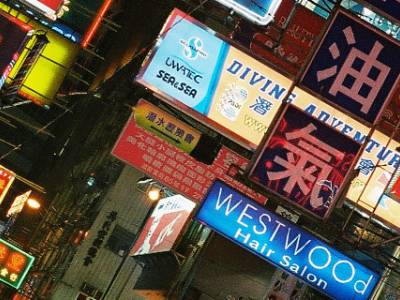Hi there,
I have a short question: Do you know a ranking of Asian or Chinese B-Schools that can be found in the Internet?
Thanks in advance for your short answer.
Best,
JL
MBA Ranking for Asia
Posted Mar 02, 2009 22:47
I have a short question: Do you know a ranking of Asian or Chinese B-Schools that can be found in the Internet?
Thanks in advance for your short answer.
Best,
JL
Posted Mar 03, 2009 05:08
Hi again, Johnny. If you're after something pan-Asian and reliable, I think the short answer is no. You can sort the Economist ranking for Asian programs in the Top 10. You get ten or so, but oddly not ISB, INSEAD or ANY school on mainland China. Maybe that's why Economist isn't such a relied-upon international ranking.
Posted Mar 22, 2009 16:13
Financial Times doesn't have a good list of Asian colleges either. Among the lists that I have seen - EIU still seems to list the most asian colleges
Posted Apr 16, 2009 15:56
in china, there are TOP FOUR universities ,
TSINGHUA, PERKING, SHANGHAI TRANSPORTATION AND
FUDAN university.
above mentioned are the first tier ,
besides CEIBS and CHANGJIANG who need GMAT rather than NATIONAL EXAM , which was hold annually for other universities in whole china.
TSINGHUA, PERKING, SHANGHAI TRANSPORTATION AND
FUDAN university.
above mentioned are the first tier ,
besides CEIBS and CHANGJIANG who need GMAT rather than NATIONAL EXAM , which was hold annually for other universities in whole china.
Posted Apr 21, 2009 08:48
in china, there are TOP FOUR universities ,
TSINGHUA, PERKING, SHANGHAI TRANSPORTATION AND
FUDAN university.
above mentioned are the first tier ,
besides CEIBS and CHANGJIANG who need GMAT rather than NATIONAL EXAM , which was hold annually for other universities in whole china.
dude, there is no Shanghai Transportation University, it should be Shanghai Jiao Tong University(SJTU). Its Antai College of Economics and Management actually ranked top 50 in FT. Tsinghua, Peking, Fudan and SJTU are IB target school domestically. There pre-experience master programs graduates are highly-sought due to their tough entrance exam, similar to the case of IIMs and IITs in India.
Local employers don't value MBAs as much as their Western counterparts. Locally-renown mba programs are CKGSB(Cheung Kong) and CEIBS, they tend to be very influential in mainland and has biggest alum network.
For those MBA programs associated with universities, MBA students are usually regarded as inferior to undergrads and grads in the same campus. The reason is those guys only take a GMAT-like entrance exam in Chinese, not the ordinary Graduate Entrance Exam which include much more difficult maths and related subject exams.
TSINGHUA, PERKING, SHANGHAI TRANSPORTATION AND
FUDAN university.
above mentioned are the first tier ,
besides CEIBS and CHANGJIANG who need GMAT rather than NATIONAL EXAM , which was hold annually for other universities in whole china.</blockquote>
dude, there is no Shanghai Transportation University, it should be Shanghai Jiao Tong University(SJTU). Its Antai College of Economics and Management actually ranked top 50 in FT. Tsinghua, Peking, Fudan and SJTU are IB target school domestically. There pre-experience master programs graduates are highly-sought due to their tough entrance exam, similar to the case of IIMs and IITs in India.
Local employers don't value MBAs as much as their Western counterparts. Locally-renown mba programs are CKGSB(Cheung Kong) and CEIBS, they tend to be very influential in mainland and has biggest alum network.
For those MBA programs associated with universities, MBA students are usually regarded as inferior to undergrads and grads in the same campus. The reason is those guys only take a GMAT-like entrance exam in Chinese, not the ordinary Graduate Entrance Exam which include much more difficult maths and related subject exams.
Posted Apr 23, 2009 10:05
Hi there,
I have a short question: Do you know a ranking of Asian or Chinese B-Schools that can be found in the Internet?
Thanks in advance for your short answer.
Best,
JL
tokyo unversity is an excellent れ choice but for珍 overall hkust is the best and most reputed program in asia
I have a short question: Do you know a ranking of Asian or Chinese B-Schools that can be found in the Internet?
Thanks in advance for your short answer.
Best,
JL</blockquote>
tokyo unversity is an excellent れ choice but for珍 overall hkust is the best and most reputed program in asia
Posted Apr 23, 2009 14:41
So, Johnny - 2nd thoughts about studying in Germany ?
Posted Apr 23, 2009 22:34
tokyo unversity is an excellent れ choice but for珍 overall hkust is the best and most reputed program in asia
I did not know that there's an MBA at Tokyo University.
I did not know that there's an MBA at Tokyo University.
Posted Apr 24, 2009 11:00
tokyo unversity is an excellent れ choice but for珍 overall hkust is the best and most reputed program in asia
I did not know that there's an MBA at Tokyo University.
me neither.
I do know there is a mba program within Kyoto University.
But while there MBAs are not valued in their university's home country, how can anybody expect Japan-made MBAs can be respected anywhere in other places.
I did not know that there's an MBA at Tokyo University.</blockquote>
me neither.
I do know there is a mba program within Kyoto University.
But while there MBAs are not valued in their university's home country, how can anybody expect Japan-made MBAs can be respected anywhere in other places.
Posted Apr 24, 2009 11:07
I'd say that any ranks are debatable, but Montauk's book will give you some good idea. Generally, HKUST is regarded as the best B-school in Asia.
Posted Apr 25, 2009 20:55
I'd say that any ranks are debatable, but Montauk's book will give you some good idea. Generally, HKUST is regarded as the best B-school in Asia.
right on...
hkust recently signed a co-operation agreement with Saudi Aramco. these guys are big time.
http://www.bm.ust.hk/bm/Web/PressReleasePage.aspx?PressReleaseId=139&Version=English
right on...
hkust recently signed a co-operation agreement with Saudi Aramco. these guys are big time.
http://www.bm.ust.hk/bm/Web/PressReleasePage.aspx?PressReleaseId=139&Version=English
Posted Aug 06, 2009 16:44
I really seek pardon to disagree with that.......According to me there are 4 broad categories of MBA schools in Asia....
Cat 1 :- Truly World Class - INSEAD / CEIBS
Cat2 :- Regional but good institutes - NUS/HKUST/ISB
Cat3 :- Colleges with good standings - IIM's / CUHK/ NTU
Cat4 :- The one which need improvements..
Regards,
I'd say that any ranks are debatable, but Montauk's book will give you some good idea. Generally, HKUST is regarded as the best B-school in Asia.
Cat 1 :- Truly World Class - INSEAD / CEIBS
Cat2 :- Regional but good institutes - NUS/HKUST/ISB
Cat3 :- Colleges with good standings - IIM's / CUHK/ NTU
Cat4 :- The one which need improvements..
Regards,
<blockquote>I'd say that any ranks are debatable, but Montauk's book will give you some good idea. Generally, HKUST is regarded as the best B-school in Asia.</blockquote>
Posted Aug 10, 2009 21:48
I really seek pardon to disagree with that.......According to me there are 4 broad categories of MBA schools in Asia....
Cat 1 :- Truly World Class - INSEAD / CEIBS
Cat2 :- Regional but good institutes - NUS/HKUST/ISB
Cat3 :- Colleges with good standings - IIM's / CUHK/ NTU
Cat4 :- The one which need improvements..
Regards,I'd say that any ranks are debatable, but Montauk's book will give you some good idea. Generally, HKUST is regarded as the best B-school in Asia.
what is your definition of world class?
placing Insead and CEIBS in the same line begs for a lawsuit.
Cat 1 :- Truly World Class - INSEAD / CEIBS
Cat2 :- Regional but good institutes - NUS/HKUST/ISB
Cat3 :- Colleges with good standings - IIM's / CUHK/ NTU
Cat4 :- The one which need improvements..
Regards,
<blockquote>I'd say that any ranks are debatable, but Montauk's book will give you some good idea. Generally, HKUST is regarded as the best B-school in Asia.</blockquote></blockquote>
what is your definition of world class?
placing Insead and CEIBS in the same line begs for a lawsuit.
Posted Sep 27, 2009 00:18
Hi everybody,
I wonder how reputed is GuanghuaSM outside China ? If I want to work in Hong Kong for example, will this diploma be a real asset ? More generally, I consider working in Asia in the future but not necessarily in China. Compared to a dual degree program with Nanyang university (Singapore), what's the best?
My school (ESSEC, France) has a dual degree program with Guanghua, but it means going 1 year in Peking and that's why I need more information before making my decision...
Thanks
I wonder how reputed is GuanghuaSM outside China ? If I want to work in Hong Kong for example, will this diploma be a real asset ? More generally, I consider working in Asia in the future but not necessarily in China. Compared to a dual degree program with Nanyang university (Singapore), what's the best?
My school (ESSEC, France) has a dual degree program with Guanghua, but it means going 1 year in Peking and that's why I need more information before making my decision...
Thanks
Posted Oct 17, 2009 16:50
I really seek pardon to disagree with that.......According to me there are 4 broad categories of MBA schools in Asia....
Cat 1 :- Truly World Class - INSEAD / CEIBS
Cat2 :- Regional but good institutes - NUS/HKUST/ISB
Cat3 :- Colleges with good standings - IIM's / CUHK/ NTU
Cat4 :- The one which need improvements..
Regards,I'd say that any ranks are debatable, but Montauk's book will give you some good idea. Generally, HKUST is regarded as the best B-school in Asia.
Insead is the sole "truly world class" school in this list.
Hong Kong UST and CEIBS are the only other two where top applicants will apply as back ups, however for CEIBS you absolutely need to speak Mandarin with any hopes of decent job in Shanghai or Beijing.
Cat 1 :- Truly World Class - INSEAD / CEIBS
Cat2 :- Regional but good institutes - NUS/HKUST/ISB
Cat3 :- Colleges with good standings - IIM's / CUHK/ NTU
Cat4 :- The one which need improvements..
Regards,
<blockquote>I'd say that any ranks are debatable, but Montauk's book will give you some good idea. Generally, HKUST is regarded as the best B-school in Asia.</blockquote></blockquote>
Insead is the sole "truly world class" school in this list.
Hong Kong UST and CEIBS are the only other two where top applicants will apply as back ups, however for CEIBS you absolutely need to speak Mandarin with any hopes of decent job in Shanghai or Beijing.
Posted Jan 03, 2010 13:07
Go check the ranking in Sino Manager, which is most reputable MBA ranking in China.
http://www.sino-manager.com/NewsShow.aspx?PostID=742
Tsinghua SEM-MIT Sloan IMBA program has been consecutively ranked 1# for 4 years ever since this ranking started!
http://www.sino-manager.com/NewsShow.aspx?PostID=742
Tsinghua SEM-MIT Sloan IMBA program has been consecutively ranked 1# for 4 years ever since this ranking started!
Posted Jan 03, 2010 18:49
Thank you very much for that. Unfortunately, I do not understand Chinese. Can the ranking be found anywhere in an English version?
Posted Feb 22, 2010 16:22
Johnny,
At this time, there are no comprehensive rankings that include all the top Chinese Schools and international schools. You can either look at the FT or EIU for international school rankings with a smattering of Chinese schools or you can look at Sino Manager for rankings of Chinese programs but not international programs.
The FT currently requires that schools be accredited with AACSB or EQUIS, and as of right now, I think that CEIBS, Tsinghua, Shanghai Jiaotong, and Fudan are the only schools currently accredit by either accreditation organization (someone correct me if I've left off school). The EIU rankings are by invitation by the EIU so conceivably they'll invite Chinese schools in the future.
In reality, there are two competing factors in the rankings that make comparisons very hard. First, all Chinese programs will do well relative to international programs for the simple reason that salaries in China are going up faster then in other parts of the world. Offsetting this is the reality that Chinese universities have student to teacher ratios that are 3 to 5 times higher than in international schools and their research productivity, as measured by either the FT or the EIU, is likely to be 1/10th that of a top international school. As a result, you can have schools rank well internationally even though the actual learning environment is not on par with the ranking.
At this time, there are no comprehensive rankings that include all the top Chinese Schools and international schools. You can either look at the FT or EIU for international school rankings with a smattering of Chinese schools or you can look at Sino Manager for rankings of Chinese programs but not international programs.
The FT currently requires that schools be accredited with AACSB or EQUIS, and as of right now, I think that CEIBS, Tsinghua, Shanghai Jiaotong, and Fudan are the only schools currently accredit by either accreditation organization (someone correct me if I've left off school). The EIU rankings are by invitation by the EIU so conceivably they'll invite Chinese schools in the future.
In reality, there are two competing factors in the rankings that make comparisons very hard. First, all Chinese programs will do well relative to international programs for the simple reason that salaries in China are going up faster then in other parts of the world. Offsetting this is the reality that Chinese universities have student to teacher ratios that are 3 to 5 times higher than in international schools and their research productivity, as measured by either the FT or the EIU, is likely to be 1/10th that of a top international school. As a result, you can have schools rank well internationally even though the actual learning environment is not on par with the ranking.
Posted Feb 22, 2010 16:39
Let me add one school.
BIMBA, one outreach program taught by Peking & Vlerick faculties with one triple-accredited vlerick degree. Offered in beautiful Langrun Garden in PKU, sounds like ads huh?
Also, SJTU run several joint-programs with UBC, Euromed, but to my knowledge, these programs mainly target domestic students and/or expats in respective regions.
Tsinghua, Fudan and Lingnan international MBA programs are supported by MIT Sloan through faculty exchange and curriculum design, it states everyone will awarded one certificare from MIT Sloan in addition to their home degrees. Although a certificate doesn't enable you stand out before prospective employer, anyway through these supports, you can expect a minimal quality of teaching, at least those textbooks are offered by MIT Sloan for free and are on par with international schools.
You come to bschool, want to build your networks and receive basic business trainings. Well-designed curriculum and textbooks, combined with not that bad faculty and local networks, there is no reason to look down upon local Chinese schools.
BIMBA, one outreach program taught by Peking & Vlerick faculties with one triple-accredited vlerick degree. Offered in beautiful Langrun Garden in PKU, sounds like ads huh?
Also, SJTU run several joint-programs with UBC, Euromed, but to my knowledge, these programs mainly target domestic students and/or expats in respective regions.
Tsinghua, Fudan and Lingnan international MBA programs are supported by MIT Sloan through faculty exchange and curriculum design, it states everyone will awarded one certificare from MIT Sloan in addition to their home degrees. Although a certificate doesn't enable you stand out before prospective employer, anyway through these supports, you can expect a minimal quality of teaching, at least those textbooks are offered by MIT Sloan for free and are on par with international schools.
You come to bschool, want to build your networks and receive basic business trainings. Well-designed curriculum and textbooks, combined with not that bad faculty and local networks, there is no reason to look down upon local Chinese schools.
Posted Feb 22, 2010 16:49
Just to be clear, I'm not looking down at Chinese schools, but I'm also not looking up at them. Looking eye to eye, I see strengths and weaknesses. The best schools in China have prestigous brands that attract great peers in the classroom (strength). Their faculty, however, simply don't compare with the faculty in the top tier international schools, either as teachers or researchers (weaknesses). When you apply for a program, make sure you know want, and go for programs that can deliver what you want. Overall rankings mean very little.
Related Business Schools
Other Related Content
The Eye of the Tiger: A Look at EMBA Programs in East Asia
Article Jan 27, 2010
Despite the global economic downturn, a focus on Asia remains an attractive option for executives
Top 10 MBA Programs in Asia
Top List
Hong Kong, Singapore and more: see the Top 10 MBA Programs in Asia here
Hot Discussions
-
UPF-BSM vs EAE Business School vs UAB, seeking insights over potential business schools in Barcelona, Spain.
Nov 07, 2024 170 12 -
Kozminski vs SGH
Oct 26, 2024 145 10 -
Looking to pivoting into management role in California
Nov 19 03:14 PM 76 5 -
"Late Bloomer" with average academics/experience, but 720 GMAT and Polyglot
Nov 07, 2024 104 4 -
Are executive short courses that bad? Any alternatives if employer pays?
Nov 13, 2024 98 4 -
Why do US schools like to hide their tuition fees?
Nov 09, 2024 98 4 -
eMBA or executive MSc Finance - Dilemma
Nov 12, 2024 72 3 -
LBS vs Oxford, move into the UK
Nov 14, 2024 92 2





